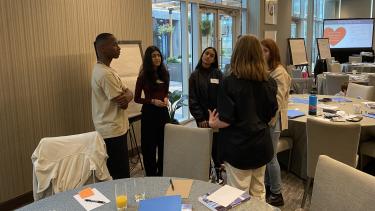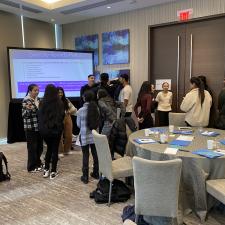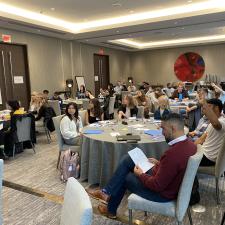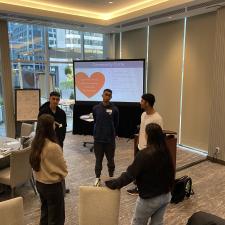
Activating Student Voice in Secondary Schools: A Few Dimensions to Explore
Over the last six months, our secondary schools have launched B.C.’s first-ever Student Community of Practice for Equity (SCOPE). Fifty-two grade eleven students, with teachers and school administration, are exploring a fundamental inquiry: What does it look like to center student voice and leadership through ongoing cycles of listening, uncovering, reimagining and, ultimately, moving forward with action? What might it entail to become a learning community with a bias towards action concerning students' voices and what matters to them? There is obviously no recipe for this work, no one way to accomplish what would be a significant change. But it does seem like there are some common elements with concomitant questions that we could and should explore.
Element 1: Develop our own convictions about what we think is really important for students and what success would look like for them. Can we articulate both a “why” (why things should change for students), and a “what” (what different might look like for students) that animates everything we do?
Element 2: Together, co-construct a common purpose towards activating student voice for deeper learning. Have we developed and co-designed a North Star that guides our own work about respecting the voices of students?
Element 3: As a community, start re-envisioning key schooling elements through listening leadership. Can we cultivate transformation along many of the levers that could lead to an increased importance placed on students’ voices and what matters to them (curriculum, assessment, district planning, school calendar/timetable, etc.)? With respect to each of these key elements, are we asking students and ourselves, “Could we do it in a different way?”
Element 4: Continue to build a culture of inquiry and humane continuous improvement that students inform. Are we acknowledging the nuance and complexity of this improvement cycle? Are we making and holding space for the exploration of the “below the green line” aspects of identity and relationships, aspects that are central to the process of respecting and acting upon the voices of students and what matters to them?
In moving forward with this work, we will continue to explore and act upon one very fundamental question: How can we help our students in schools clarify their visions, values, and purposes and address their own unique challenges?
GINO BONDI, ASSISTANT SUPERINTENDENT
Abbotsford School District


